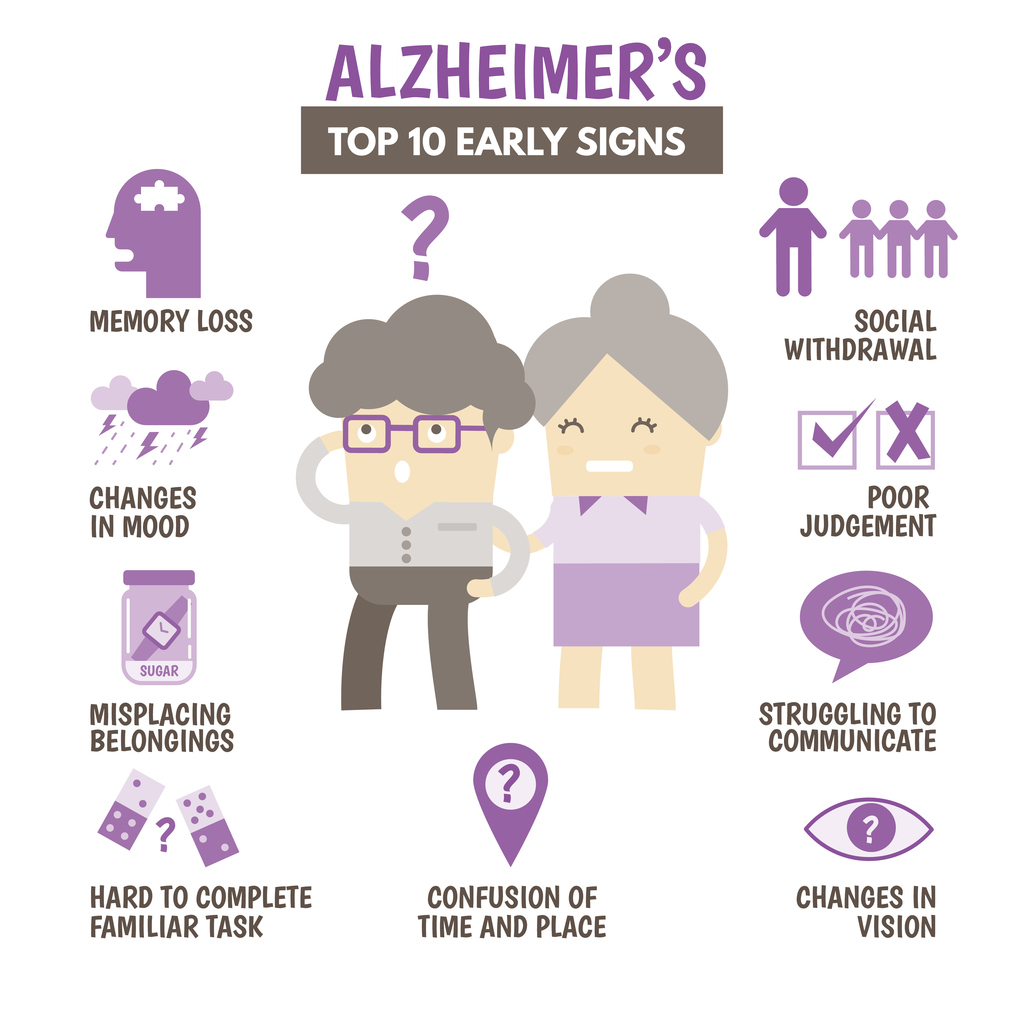Imagine waking up one morning, your own home feeling unfamiliar, like a foreign land. Your loved ones seem distant, their words muffled, and the world around you feels shrouded in a thick fog of bewilderment. This, sadly, is the harsh reality for millions living with dementia and Alzheimer’s disease. Chapter 5 of life, a chapter we all hope to reach, can become clouded by this insidious thief of memory and clarity.

Image: www.nursenextdoor.com
Dementia and Alzheimer’s disease are not mere diagnoses – they are journeys fraught with challenges, heartbreak, and a gradual erosion of the very fabric of who we are. This chapter, though filled with uncertainties, holds a desperate need for understanding, for compassion, and for finding hope amidst the fog.
Unveiling the Mystery: What is Dementia?
Dementia is an umbrella term, a broad category encompassing a variety of brain disorders that affect memory, thinking, behavior, and the ability to perform daily tasks. It isn’t a single disease, but rather a constellation of symptoms arising from various underlying causes. The most common form, accounting for 60-80% of cases, is Alzheimer’s disease.
A Journey Through Time: Understanding Alzheimer’s Disease
Alzheimer’s disease is a progressive, neurodegenerative disorder, meaning it gradually damages specific brain cells responsible for memory and thinking. The disease slowly unravels the delicate network of neural connections, leading to a decline in cognitive abilities. What sets it apart from other types of dementia is the presence of telltale amyloid plaques and neurofibrillary tangles, abnormal protein deposits that disrupt brain function.
The Silent Thief: Early Stages of Alzheimer’s Disease
Early stages of Alzheimer’s disease often manifest as subtle changes, easily dismissed as normal aging. Forgetfulness, misplacing belongings, experiencing difficulty finding words, and becoming easily disoriented are common early signs. These seemingly minor incidents are silent warnings, hinting at a larger battle brewing within the brain.

Image: www.alzheimersresearchuk.org
Navigating the Fog: Middle Stages of Alzheimer’s Disease
As Alzheimer’s progresses, the fog thickens. Memory loss becomes more pronounced, affecting not only recent events but also long-held memories. Confusion deepens, disorientation increases, and daily tasks become increasingly challenging. Personality changes may emerge, with individuals experiencing mood swings, agitation, and anxiety. This stage is often marked by a growing reliance on caregivers, as individuals struggle to maintain independence.
A World of Lost Connections: Late Stages of Alzheimer’s Disease
In the late stages of Alzheimer’s, the disease’s grip tightens. The brain is significantly damaged, making communication and basic daily activities extremely difficult. Individuals may experience significant cognitive impairment, losing the ability to recognize loved ones, communicate verbally, and perform self-care. This stage necessitates around-the-clock care, a heavy toll on both the individual with Alzheimer’s and their loved ones.
Beyond the Diagnosis: Living with Alzheimer’s
A diagnosis of Alzheimer’s disease is not a death sentence. Though challenging, the journey with Alzheimer’s can be filled with moments of love, laughter, and connection. Focusing on quality of life, fostering a supportive environment, and utilizing available resources are essential steps in navigating this difficult chapter.
The Power of Early Detection and Prevention
While there is currently no cure for Alzheimer’s disease, proactive steps can be taken to potentially delay its onset or slow its progression. Maintaining a healthy lifestyle, prioritizing mental stimulation, and engaging in regular physical activity can all contribute to cognitive health. Early detection through regular screenings and medical consultations is crucial for initiating treatment and supporting individuals and families.
Supporting Loved Ones: A Journey of Empathy and Understanding
Living with a loved one with Alzheimer’s disease is a deeply personal experience, requiring immense patience, love, and understanding. It’s a journey of navigating emotional highs and lows, witnessing a gradual decline, and adapting to changing needs. Seeking support from support groups, therapy, and professional caregivers can provide invaluable resources and guidance.
Finding Hope Amidst the Fog: The Power of Connection
The journey with dementia and Alzheimer’s disease is a testament to the human spirit’s resilience. Despite the challenges, moments of joy, laughter, and connection still emerge. By embracing the journey with empathy, patience, and love, we can create a world where individuals with dementia and Alzheimer’s disease are cherished, supported, and empowered to live meaningful lives.
Chapter 5 Confusion Dementia And Alzheimer’S Disease
https://youtube.com/watch?v=IMFg5HSbTJg
Moving Forward: The Quest for Understanding and Hope
Chapter 5 presents us with challenges unlike any other. It calls for empathy, compassion, and a renewed sense of urgency in driving research and development for effective treatments, prevention strategies, and support systems for individuals and families navigating this complex journey. Remember, the road ahead is not a solitary one. By seeking knowledge, connecting with others, and embracing hope, we can find strength in the face of uncertainty, ensuring a brighter future for those living with dementia and Alzheimer’s disease.






